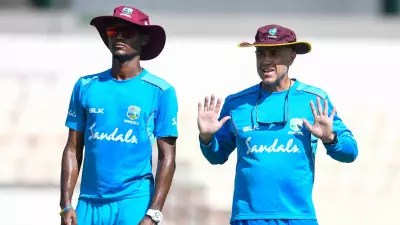
In an unprecedented move that breaks longstanding cricket traditions, the Board of Control for Cricket in India (BCCI) has scheduled tea before lunch for the second Test match between India and South Africa in Guwahati. This radical change to the conventional match day schedule comes as a direct response to the unique daylight patterns in India's northeastern region.
Why Tradition is Taking a Backseat
The decision, announced on November 17, 2025, stems from practical considerations regarding Guwahati's geographical location. The Assam region experiences significantly earlier sunrise and sunset times compared to other Test venues across India. This natural phenomenon has forced cricket administrators to rethink the traditional break sequence that has been standard in Test cricket for decades.
The conventional order of lunch followed by tea will be completely reversed when the two teams take the field at Guwahati's stadium. This marks one of the rare instances where cricket's time-honored traditions have been altered to accommodate regional environmental factors.
Understanding the Schedule Change
Test cricket has historically maintained a consistent pattern of intervals: the first session followed by lunch, then the second session concluding with tea, and finally the evening session. The Guwahati Test will see this established pattern turned upside down, with players taking their tea break before what would normally be the lunch interval.
This scheduling innovation addresses the practical challenge of maximizing playing time during optimal daylight hours. With the sun setting much earlier in northeastern India, cricket authorities needed to ensure that sufficient playing time is available during the brightest parts of the day while still accommodating necessary player breaks.
Impact on Players and Match Dynamics
This break reversal could potentially affect player routines and match strategies. Both the Indian and South African teams will need to adjust their preparation and recovery patterns to accommodate this unusual schedule. The change might influence everything from meal timing to energy management throughout the day's play.
Cricket purists might view this as a significant departure from tradition, but practical considerations often necessitate such innovations in the modern game. The BCCI's decision demonstrates adaptability to regional conditions while prioritizing the quality of cricket and player welfare.
This scheduling experiment in Guwahati could set a precedent for future matches in regions with similar daylight patterns, potentially changing how cricket administrators approach match scheduling in different geographical locations across the cricketing world.






